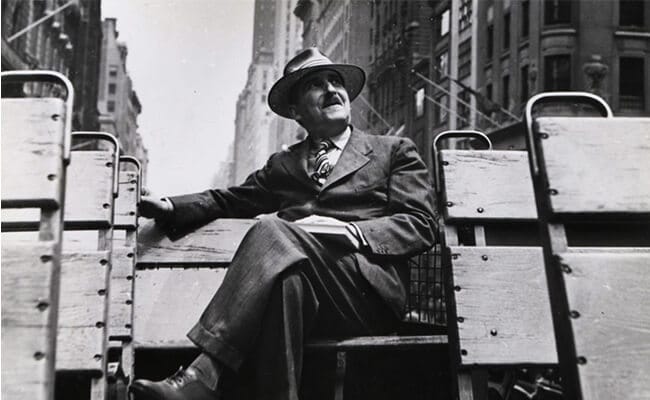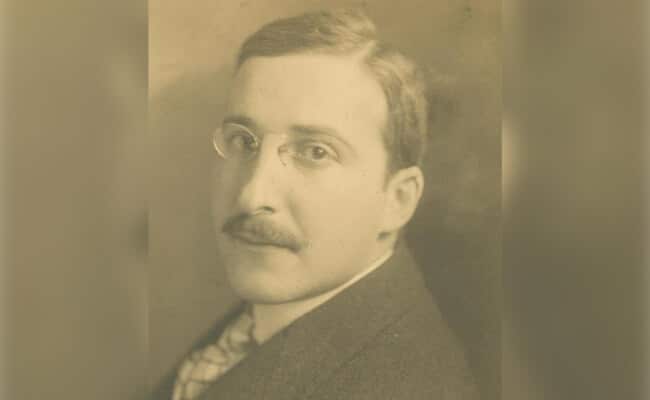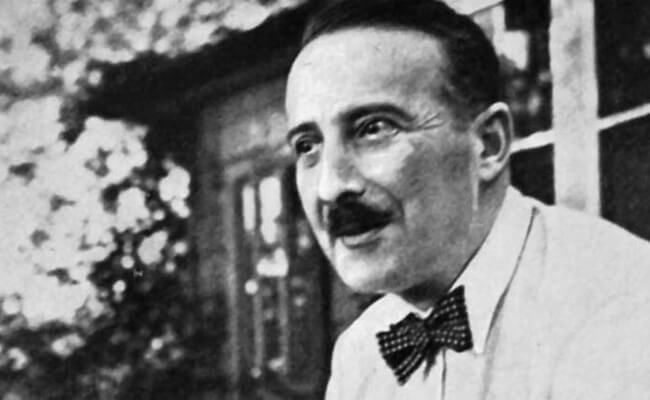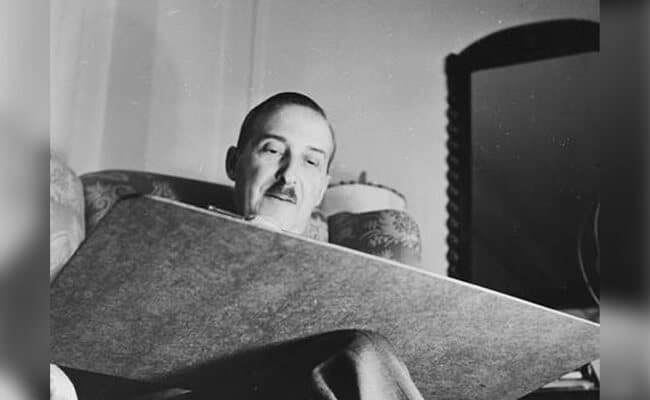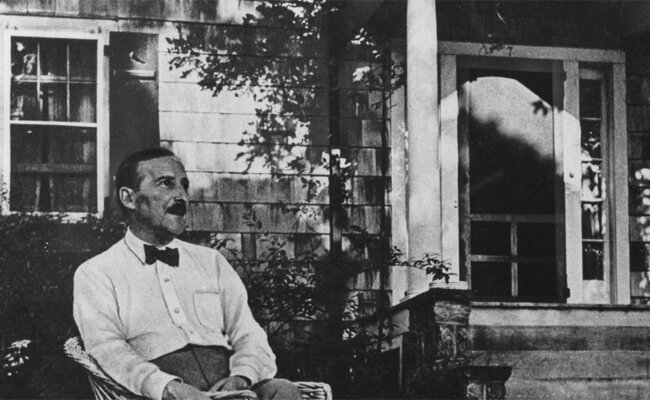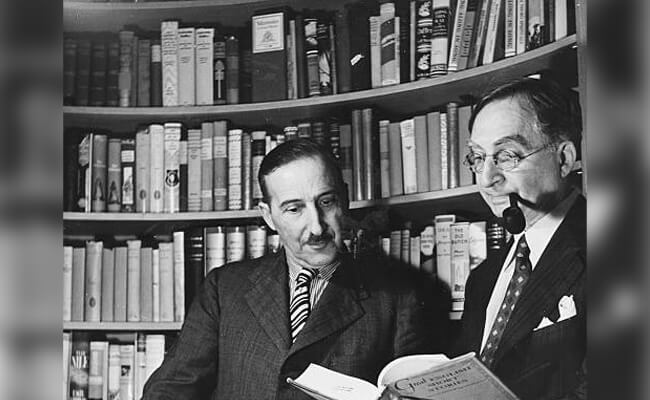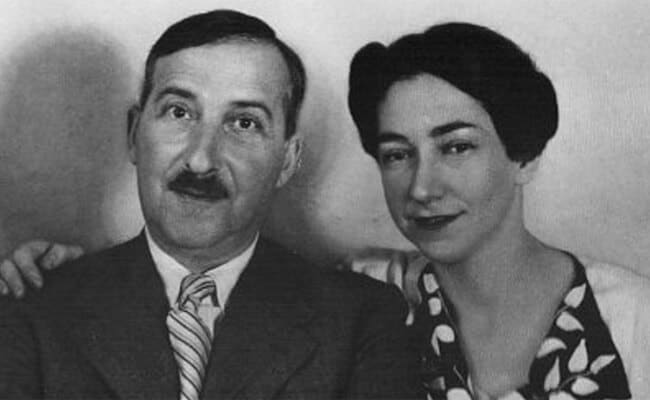Stefan Zweig, whose works we often come across today, was one of the brightest literary figures of his time. Zweig, who had great difficulties in Nazi Germany, managed to embrace his work with enthusiasm. So that; During Zweig’s active years in the 1920s and 1930s, his works were translated into more than 50 languages and became the most translated author of his time. But this did not prevent the Nazis from burning their works, as they did with all other Jews. In this content, we take a closer look at Stefan Zweig’s life and his difficulties.
Birth and youth years:
Stefan Zweig was born on 28 November 1881 in Austria. Zweig’s father, who had a wealthy Jewish family, was a textile manufacturer. Zweig studied philosophy at the University of Vienna. Philosophy and science had a great place in Zweig’s life, who did not receive a religion-oriented education. As a matter of fact, this situation will ensure that he does not remain indifferent to the events around him later on. Zweigi was quoted as saying in an interview: “ My parents were Jewish by birth. ” said. Still, he did not break with Jewish culture and worldview and wrote repeatedly on themes of Jews and Jewish racism, as in Buchmendel’s story.
Zweig, who did not hesitate to resist the Nazi Fascism and to produce works in this way, reflected the political situation he was in both in his works and in normal life practices through his works. In addition to philosophy, he was well equipped in the field of culture and literature. He also spoke English, French, Italian, Greek and Latin. In addition to all these, he continued to produce products in the field of summer. Her first novel, Die Liebe der Erika Ewald , was published in 1904. Developing his own unique style in the field of literature, Zweig was nurturing his own inner world and creating original story and poetry experiments. Influenced by the socio-cultural life of the period, Zweig was not indifferent to war and racism.
Stefan Zweig and the First World War years:
Stefan Zweig actively participated in the First World War, worked as a civil servant in the war archives. He volunteered in the war. However, after seeing the destructiveness of the war, he said that he was against the war on the Galician front. In Der Turm zum Babel (Tower of Babel) and Der Zwang (Forcing) ; He gave place to the evil, burning and anti-war thoughts of war. Zweig tried to explain the pain experienced at the front in his unique style in the theater text called Jeremiah .
Stefan Zweig after the war:
With his exemption from military service, his ties with the military establishment were cut, Zweig began working as a journalist. He continued his journalistic activities in the newspaper Neue Freie Presse . He moved to Sweden in the process. He then returned to Salzburg after the war was over. Zweig married Rederike Von Winternit in Salzburg. The years he spent married in Salzburg were among his most productive. He had the opportunity to lean on literature quite a lot. During this period, he wrote reviews on Balzac, Dickens, Dostoyevsky, Hölderlin, Kest, Nietzsche, Casanova, Stendhal and Tolstoy.
Stefan Zweig and his Literary Personality:
When we look at Stefan Zweigi’s both his literary life and his daily life practices, we see that he was highly influenced by the socio-cultural structure and atmosphere of the period. Especially during the war years, the genocide that the Jews were exposed to caused deep wounds in their self.
We see that he places this sadness in many of his works, both by using the subconscious technique and in the upper imaginary language of the style. In his works, which have a tragic side, he uses language skillfully, and the languages he establishes the atmosphere he wants to feel in his works very successfully. As a school, he adhered to the Viennese school school. He was also greatly influenced by Balzac and his pen.
Years of exile:
As Hitler’s fascism escalated in Germany, Zweig was blacklisted. The reason for this was that Zweig was Jewish and did not remain indifferent to Hitler’s fascism and mentioned this issue in his works. Among the books burned by fascism were Zweig’s published books. Stefan Zweig moved to London in 1934 after his home was raided by the Nazis at gunpoint. However, he did not feel comfortable here and moved to Bath. He had another relationship after he broke up with his wife, Frederike. He went to Portugal with his Jewish lover. As Nazi annexation escalated on all sides, Zweig sought British citizenship. He then married his lover Lotte Altmann. He changed many cities after he became a British citizen. Meanwhile, he wrote Impatient Heart and Chess , which are also known to the masses.
Stefan Zweig’s suicide:
The event that left deep wounds in Stefan Zweig’s life was undoubtedly the Holocaust, which he witnessed as a Jew. He did not hesitate to hide it both in his works and in his normal life. That’s why his works are so open to autobiographical reading. Zweig wrote many of these works under a heavy sadness that enveloped the ego. Zweig, who came to Brazil in 1941 after changing many cities, settled in the city of Petrópolis. But Zweig’s life in Brazil did not last long. Zweig committed suicide in 1942 with his wife, Lotte Altmann, by taking an overdose of sleeping pills. Here is that suicidal letter that made us tremble:
“As I leave this life of my own free will and clear consciousness, one last responsibility awaits fulfillment: To express my sincere thanks to the wonderful country Brazil, which has provided me and my work with a peaceful environment. With each new day I have learned to love this country more, my spiritual homeland Europe I couldn’t have rebuilt my life so lovingly anywhere in the world after I destroyed it and the world of my mother tongue disappeared. But it takes a very special strength to start anew after the age of sixty. And my strength has been exhausted after years of stateless journeys. “
Stefan Zweig, Petropolis 22.11.1942
Stefan Zweig’s works where you can find clues about his life:
- Yesterday’s World
- Twenty-Four Hours of a Woman
- Tomorrow’s History
- 24 Hours of a Woman’s Life and the Death of a Heart
- Clarissa
- Embedded Candlestick
- Wandak
- Fear
- An Extraordinary Night
- chess
The Life and Theories of Freud, the Founder of Psychoanalysis

